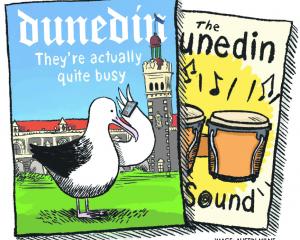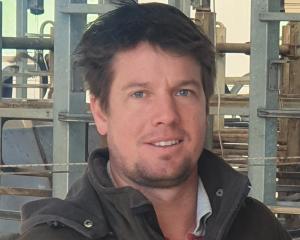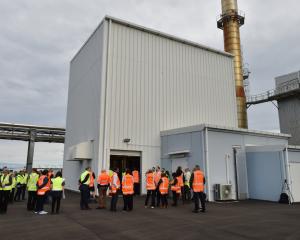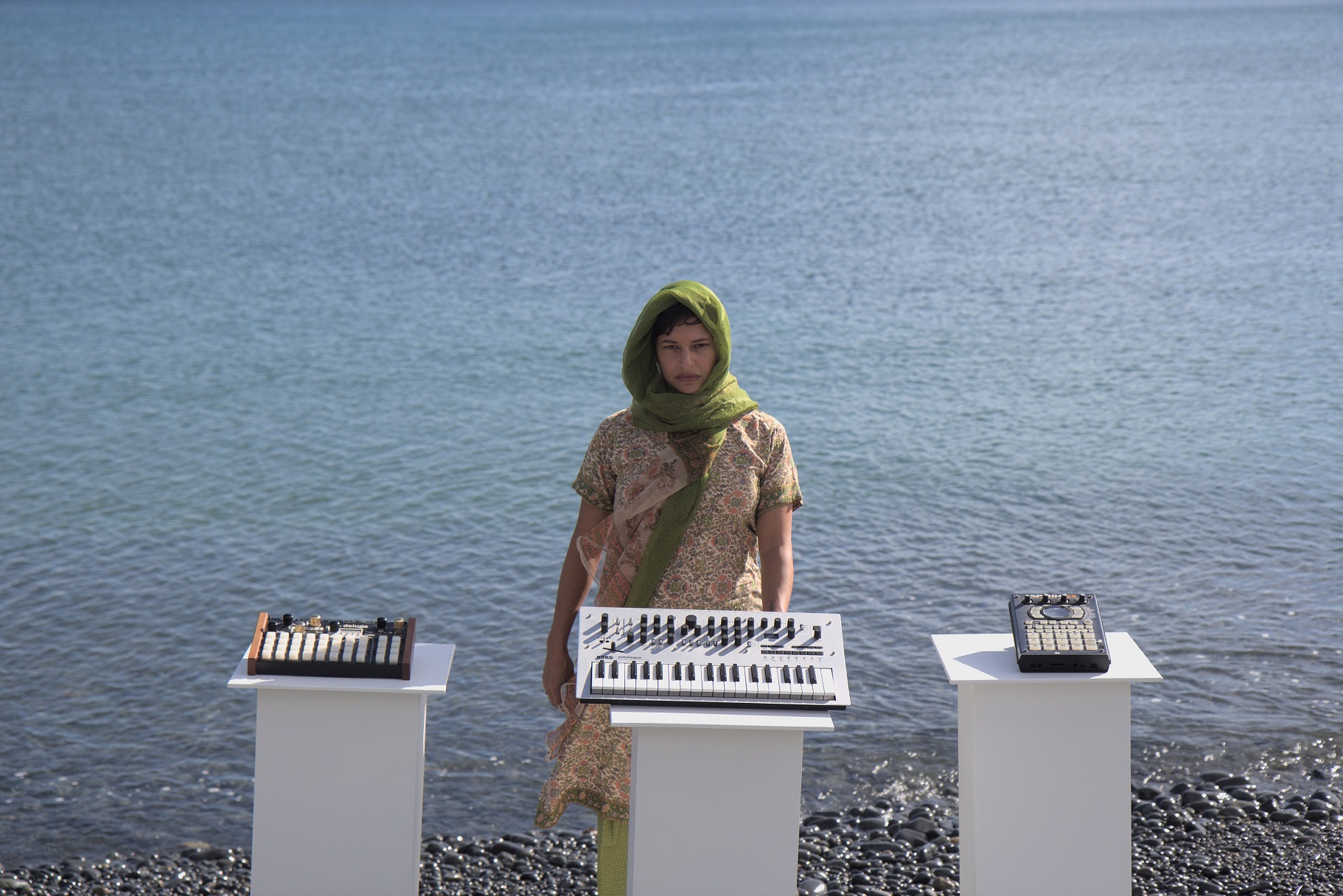
It all began with simple curiosity about her family history for Nadia Freeman.
She knew her mother’s family had come from Tamil Nadu to Fiji in the early 1900s for indentured labour contracts but did not know much else.
"My family didn’t understand the conditions of those contracts. They just knew they’d come out to work. Some had said a word similar to slavery but I wasn’t sure how true that was."
So she went to the library seeking out material written about Indian indentured labourers, called the Girmityas — girmit translates to "agreement"— who were brought to Fiji to work on sugar plantations and other British colonies in the 19th and 20th centuries. She only found one book.
Freeman had to dig into the National Library archives to find further material written about the Girmityas, discovering a consistent story throughout the about 20 books.
"I was really shocked. I wasn’t expecting the history of it all to be so brutal."
What shocked her most was how little most people knew about the Girmityas and what happened to them.
"I had this deep anger nobody knew this had happened or not enough. But when you look into history you are going to find hard things. It is the same in many cultures."
She talked to her family about what she had discovered and some struggled to believe the stories.
"I think because there is a lot of shame a lot of people don’t talk about it and it’s not in any education curriculum in Fiji either."
Freeman decided the easiest way to tell the story was through a theatre show, combining her skills in music composition and storytelling. She spent the next few months researching further and recording information as she tried to piece together the story.
"After a while the story became very clear. I wanted to make a show that used music composition to tell a story so the medium was obvious, it was just how to make that work."
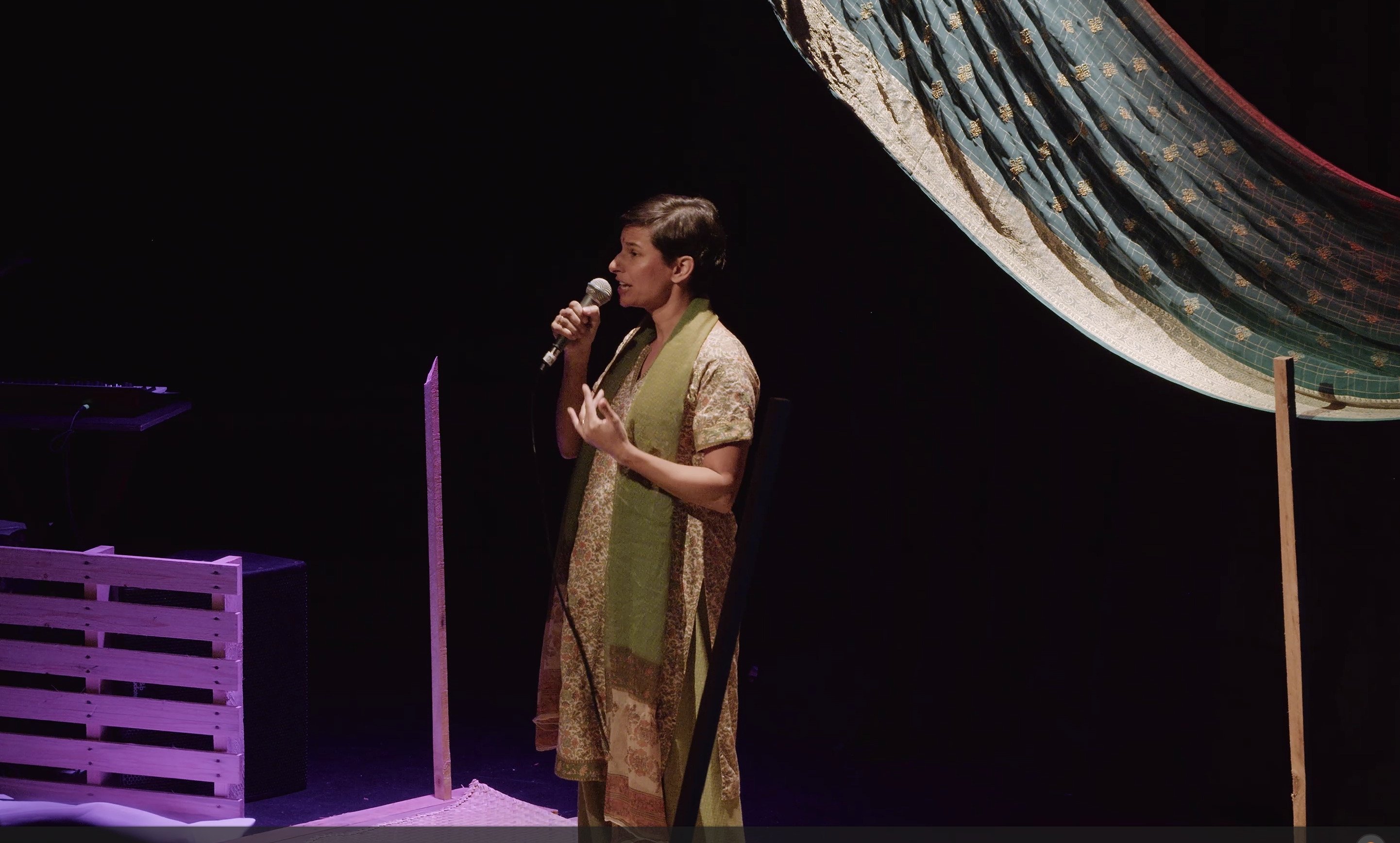
"This is the most serious piece of work I’ve done. Up until now it’s been quite light, the last show was a poetry show about parallel universes.
"All my songs are fun beats and dancey but if you listen to the lyrics they’re usually about social issues and political topics under it and the same with my show — it was about human rights, war, feminism.
"There has always been a touch of seriousness but there is no hiding it with The Girmit."
So for this project she came up with the idea of using props to create soundscapes. She has a theory that people who are not fans of electronic music find it a mystery.
"I wanted to remove that barrier between what I’m playing on and my audience so by using objects they recognise, like I grab a conch shell or grab sugar can reeds and make noises with them, they are with me as they are identifiable."
During the show she records those sounds which are relevant to each part of the story, loops it and manipulates it.
"They can see me doing it so it removes that layer of mystery about what I’m doing. Music has a way of connecting with people’s emotions that is different from just saying a person’s story.
"One of the first sounds sampled in the show is of the signing of a contract and girmit means contract — it has a haunting effect that sound."
Freeman, who also sings and recites poetry during the show, plays recordings of people narrating some of the Girmityas’ stories — including one her uncle narrated for her in what she calls a multimedia show.
"I don’t know how they did it. They might have been working 12-14 hour days, absolutely exhausted and without enough food. They still got together, they still sang together, made music together, had village ceremonies, they got married, had families — life still happened."
In the background of the show hangs a work Incensed made by Indo-Fijian artist-designer Padma Naidu, made for the 2023 Dunedin Fringe Festival. The transparent white silk organza panels the size of saris have been marked with incense resulting in lace-like patterns.
It reflects how incense is used in ceremonial rituals to create ambience, dispel odours, cleanse and communicate to spirits.
Freeman has also projected her great-grandmother’s immigration certificate on the wall behind her during the show, but she never shared her story with family.
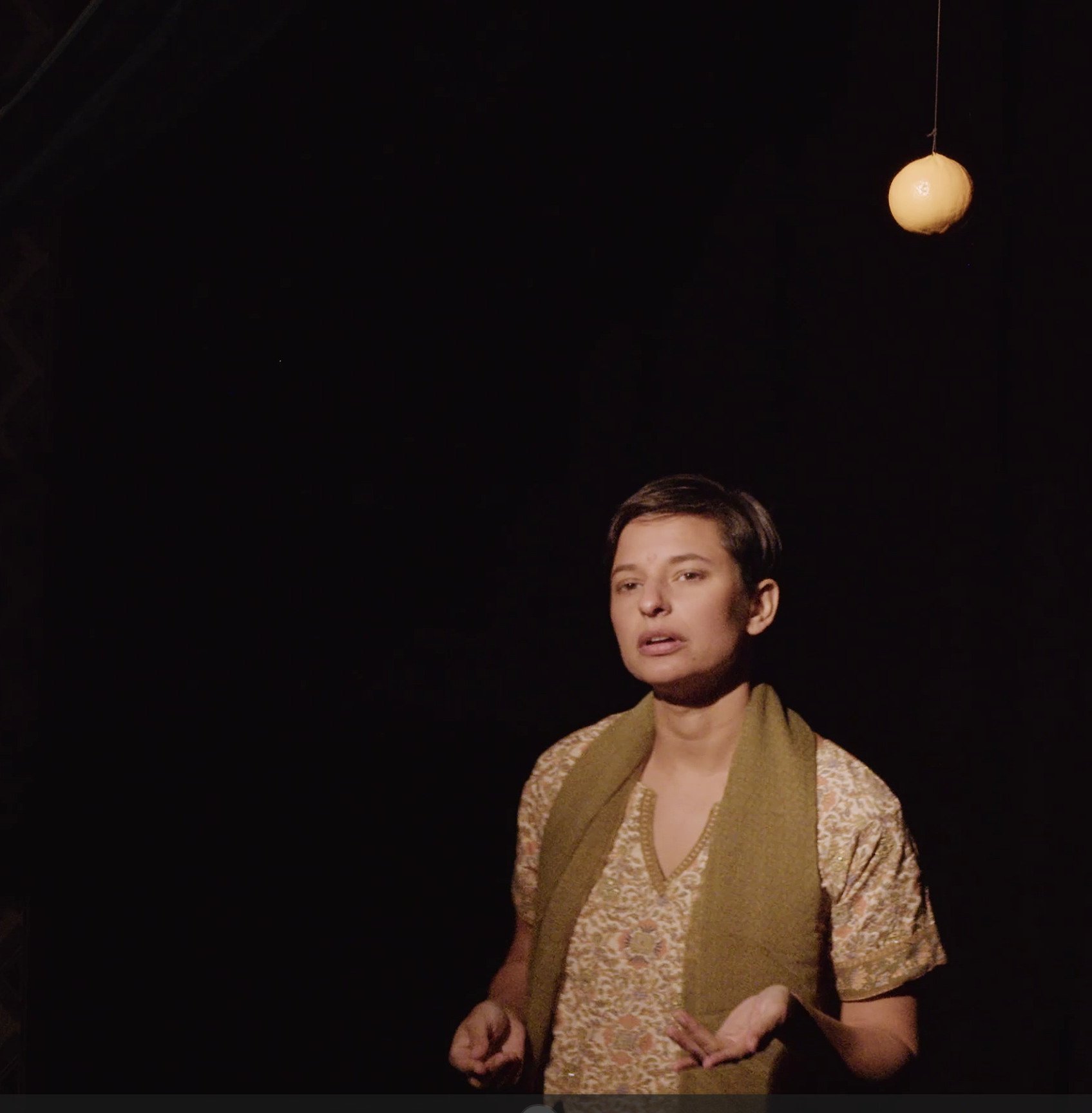
"There have been huge rates of addiction and physical health problems, mental health issues and violence. I feel fortunate to be the third generation of that and we haven’t had to live through the same level of poverty. We’re in the healing stage."
As a result in more recent times, there has been a burst of projects about the Girmityas including a new book and exhibitions.
"There is something about this generation who want to look at the past and are ready to, and have this desire to, make art from it."
Freeman, who has a master’s in public health, has been writing poetry all her life but did not realise until her early 20s that she could do it more seriously, without being published in books, through things like performance poetry.
"It’s probably always been there. Music is new to me. I only started in my early 30s when I came across a Wellington-made instrument, called a Deluge Synthstrom. It was a vehicle that made sense to me. It opened up my entire world."
She started making beats on the instrument and then realised she wanted to add words, so started experimenting, including with poetry and song. Thinking she was not a very good singer she took jazz singing lessons for a year.
"I kept working and working on it and I’m now comfortable singing in front of people."
It was not until she returned to New Zealand — she had been living in Edinburgh working in international health and sustainable travel for the prior five years — during the pandemic that she became serious about her creativity. Someone suggested she do a show for the New Zealand Fringe so she thought she would give it a go and during her time in quarantine came up with a concept.
"I’d had guest spots performing in the Edinburgh Fringe so it was always all around me but I didn’t really think about it until I left."
The success of that fringe work led to another contract.
"These things happen slowly though. It’s evolved over time with some happy accidents."
This project in particular has given her the opportunity to connect with her Fijian-Indian heritage. The time three generations spent in Fiji changed their culture, the food they ate, the language, their characteristics.
"I feel a greater connection to Fiji because of it. It is hard to know where we belong sometimes. One hundred and fifty years ago my ancestors came from India but it is a long time ago. It’s helped me realise my mum’s culture is a unique thing."


